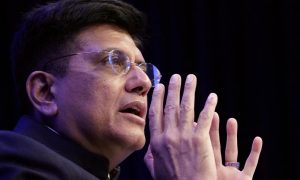Social media platforms have become a prominent place to connect and share information. Platforms like Facebook, Twitter, and Instagram are said to be safe, but it’s always advised to use them responsibly. People are always warned not to share confidential or sensitive personal information on social media, as small negligence can lead up to bigger consequences. In a recently reported case, a woman lost around Rs 64,000 to cyber fraudsters as she shared details of her upcoming train tickets on social media.
Read More: Bank Holidays in January 2023: Banks to remain closed for up to 14 days THIS month, full list here
A resident of Vile Parle Mumbai was reportedly duped for Rs 64,000 while she was complaining about her RAC ticket on IRCTC’s Twitter handle. According to the report by the Times of India, MN Meena booked three tickets on the IRCTC site to travel to Bhuj on January 14. Since all the seats were almost booked, Meena got RAC (Reservation Against Cancellation) seats. This means in case a confirmed passenger does not board the train, a full berth will be allotted to the passenger with an RAC ticket. If not, the RAC passenger will have to share a seat.
To check if the RAC tickets would be confirmed, the 34-year-old woman posted the train ticket details and mobile number on Twitter and asked IRCTC for further assistance. After waiting for a while, Meena received a call which her son and answered. The caller allegedly introduced himself as a customer support executive from IRCTC and offered to help them confirm their RAC ticket. The caller sent a link on the phone and asked Meena’s son to fill up details and pay Rs 2 to get their train ticket to Bhuj confirmed on the journey date.
Read More: Get SBI collateral free loan upto Rs 10 lakh, scheme ENDS on 31 March 2023
Both Meena and her son thought that they had been contacted by IRCTC as they posted their complaint on Twitter. Without much thought, her son filled up the phone and paid Rs 2. And within a few moments, they received back-to-back transaction alerts from their bank accounts. The fraudsters took off Rs 64,011 rupees from the bank account. “My son believed the caller as the call was received some time after the complaint was tweeted on IRCTC’s Twitter page. The caller claimed he was from IRCTC’s customer care and assured us of getting our ticket confirmed. The person asked to fill up in details after clicking on a link sent on the mobile. Bank details and other information were filled and uploaded. Later we found five transaction alerts on my mobile.” “We had tweeted the complaint, thinking that if our RAC seats do not get confirmed, we would have to travel sitting which will be difficult,” Meena said in the FIR.
According to police, the fraudster asked them to pay RS 2 through UPI and even asked them to fill in details through a link. Apparently, fraudsters stole the details of Meena’s bank account and UPI security code through the phishing link.
While fraudsters got Meena’s number through her post on Twitter, they also were able to get her trust by sharing her train ticket details. Following the case, it is always advised never to share confidential details online and beware of phishing links. IRCTC or other prominent organisations never ask for money online.





































